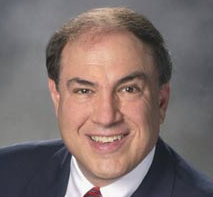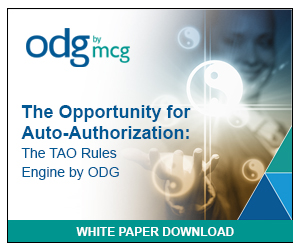Industry Insights
April 26, 2023
Gelman: High Court to Hear Arguments in Derivative Immunity Claim
- State: California
- - 0 shares
The California Supreme Court has scheduled an oral argument for May 9 in the matter of Kuciemba v. Victory Woodworks. The court had accepted the request of the Court of Appeals for the 9th Circuit to answer a question of state law regarding employers' liability in COVID claims.

Jon L. Gelman
The case raises the important question of whether employers can be liable for COVID-19 infections that spread from the workplace to employees' homes. The outcome of this case could significantly impact employers nationwide, as it could establish a new legal precedent for holding employers responsible for the spread of infectious diseases in the workplace.
In Kuciemba, the plaintiffs are the wife and adult son of an employee who contracted COVID-19 and brought the virus home to them. The plaintiffs allege that the employer's negligence in failing to take adequate precautions to prevent the spread of COVID-19 caused their injuries. The employer argues that it has no legal duty to protect non-employees from the spread of infectious diseases and that the derivative injury doctrine, therefore, bars the plaintiffs' claims.
The U.S. District Court for the North District of California dismissed the case in an unpublished decision, Kuciemba v. Victory Woodworks Inc. An appeal was taken to the 9th Circuit Court of Appeals. The Circuit Court requested the California Supreme Court to decide two questions of state law: whether derivative injury doctrine barred the spouse's claims and whether the employer owed the spouse the duty to exercise ordinary care to prevent the spread of COVID-19.
The derivative injury doctrine
The derivative injury doctrine is a legal principle that prevents plaintiffs from recovering damages for injuries caused by the negligence of another person but also caused by the plaintiff's own negligence. In the context of COVID-19, the derivative injury doctrine would bar the plaintiffs from recovering damages from their employer if they themselves could have taken steps to protect themselves from the virus, such as getting vaccinated or wearing a mask.
The California Supreme Court must decide whether the derivative injury doctrine applies to COVID-19 cases. If the court finds that the doctrine does apply, then the plaintiffs in Kuciemba will likely be barred from recovering damages from the employer. However, if the court finds that the doctrine does not apply, the plaintiffs could recover damages.
Household contacts
The concept of litigation by a household contact is longstanding. A negligence action can be brought by the household contact directly against the employer. The case is similar to the claims right by family members of asbestos workers who brought fiber home on their clothes, contaminated the household environment and subjected the household members to diseases such as asbestosis, lung cancer and mesothelioma.
New Jersey
In New Jersey, a landowner can be liable for injuries allegedly caused by asbestos exposure experienced by the spouse of a worker who had performed welding and steam fitting tasks that brought him into contact with asbestos on the landowner's premises.
National impact
The outcome of Kuciemba could guide other states nationwide on this issue. If the court finds that employers have a legal duty to protect nonemployees from spreading infectious diseases, employers could be liable for COVID-19 infections that spread from the workplace to employees' homes. This could lead to increased safety precautions imposed by employers to protect both their employees and their household contacts.
Therefore, the California Supreme Court's decision in Kuciemba is important. The outcome of this case could guide other state courts, significantly impact employers nationwide and help shape the legal landscape for COVID-19 litigation.
Claimants' attorney Jon L. Gelman is the author of "New Jersey Workers’ Compensation Law" and co-author of the national treatise "Modern Workers’ Compensation Law." He is based in Wayne, New Jersey. This blog post is republished with permission.
Advertisements
Columns
- Gelman: Medical Reports Matter 05/09/25
- Montgomery: Rand Gets $300K for UR Study. What's the ROI? 05/05/25
- Salem: Respondent Who Is Not Employer May Not Owe Filing Fee 05/02/25
- Gelman: When Credibility Crumbles 04/30/25
- Montgomery: More States Move to Expand Workers' Comp PTSD Coverage 04/28/25
- Gelman: The Toll of Neglect 04/25/25
- CAAA: Fraud in the Workers' Comp System 04/23/25
- Gelman: Broken Medical Promises 04/21/25
- Langham: Never Give Up, Never Surrender 04/18/25
- CAAA: The Dismantling of NIOSH 04/16/25
- Ahmed: Strategies for Successful Negotiation 04/14/25
- Shabestari: Addressing Venue in Work Comp Claims 04/11/25
- Snyder: Do You Trust Your Mediator? 04/09/25
- Gelman: Beyond the Knife for Back Pain Relief 04/04/25
- Montgomery: Changes to Workers' Comp DME Authorization 04/02/25
- Langham: Notice of Unavailability 04/01/25
- Moore: Critical Workers' Comp Business Change Reporting Requirement 03/31/25
- Mussack: AMA Guides, State PDRS Can Differ on Rating Instructions 03/28/25
- Kamin: Hope Springs Eternal With New District Attorney 03/26/25
- Langham: DOGE 2025 03/24/25
Now Trending
- Workers' Compensation News
-
Calif. Exception
to Going-and-Coming Rule Not
Applicable to Carpool Arranged by…
Posted on May 2, 2025
-
Calif. Oxnard
Judge William M. Carero…
Posted on May 7, 2025
-
Calif.
Appropriations Committee Hears Comp
Bills May…
Posted on May 6, 2025
-
Calif. Committee
Sends MLFS Update, Cost-of-Living
Bills to Suspense…
Posted on May 7, 2025
-
Calif. WCIRB Files
Recommendation for 11.2% Rate…
Posted on May 2, 2025
-
Nev. Supreme Court
Upholds Grant of Worker's Petition
for Mandamus…
Posted on May 6, 2025
-
Calif. Committee
Passes Amended Premium Fraud
Reporting…
Posted on May 2, 2025
-
Ky. Court
Clarifies Ability of ALJs to
Correct Mistaken Findings in
Interlocutory…
Posted on May 7, 2025
-
Texas Court
Overturns Jury Verdict, $1.84
Million Award for Worker's…
Posted on May 5, 2025
-
Fla. Four Indicted
in Alleged Off-the-Books Payroll…
Posted on May 8, 2025
Jobs
- Associate Attorney
- Associate Attorney
- Senior Attorney/Assistant Attorney 1/2/3 (NY HELPS) WCB Item #8000
- Compensation Claims Referee, SG-28 (NY HELPS) WCB Item# 4218
- Registered Nurse – Workers' Comp Utilization Review Case Manager (Hybrid - Remote/In-Office)
- Workers' Compensation Defense Attorney
- Here We Grow! WC Defense Attorney (Multi-State) Workers' Compensation Jobs
Upcoming Events
May 12-14, 2025
NCCI Annual Insights Symposium
NCCI's Annual Insights Symposium (AIS) 2025 will deliver data-driven insights, providing workers c …
May 12-13, 2025
CSIA 2025 Annual Conference
The Board of Managers is excited to announce that the CSIA 2025 Annual Meeting and Educational Con …
Jun 11-13, 2025
CCWC 2025 Educational Conferen
For two decades, CCWC has assembled the key players in the workers’ compensation arena for what is …
Social Media Links
c/o Business Insurance Holdings, Inc.
Greenwich, CT 06836




No Comments
Log in to post a comment